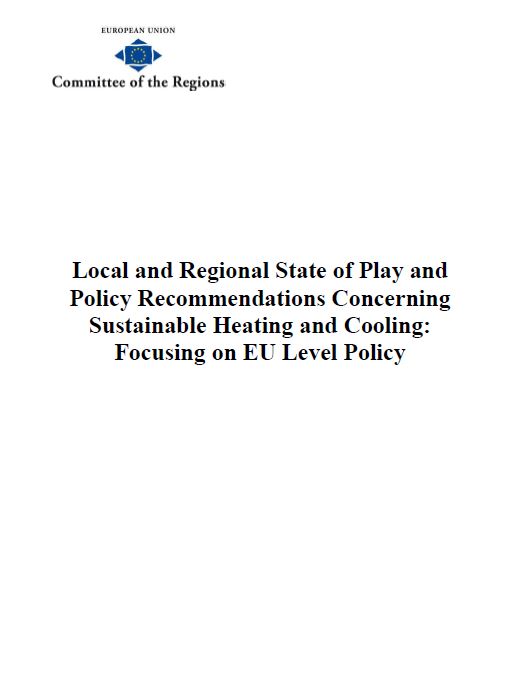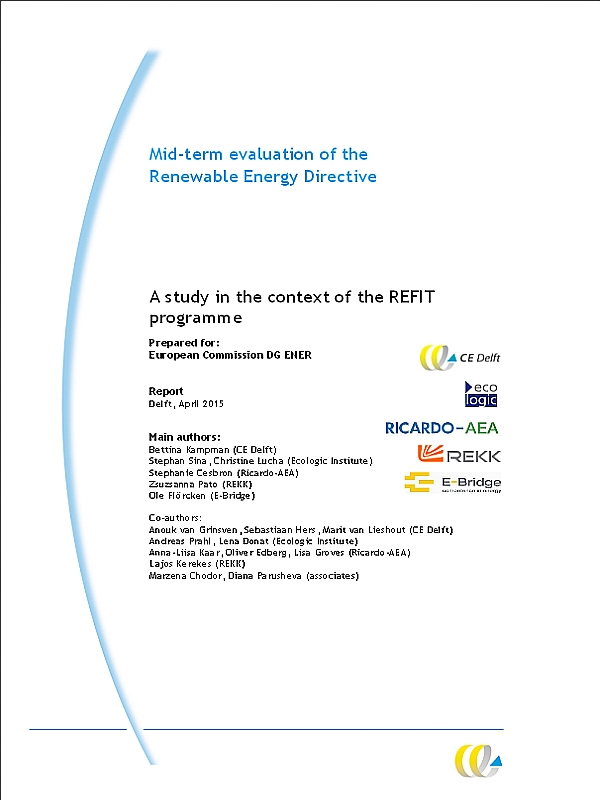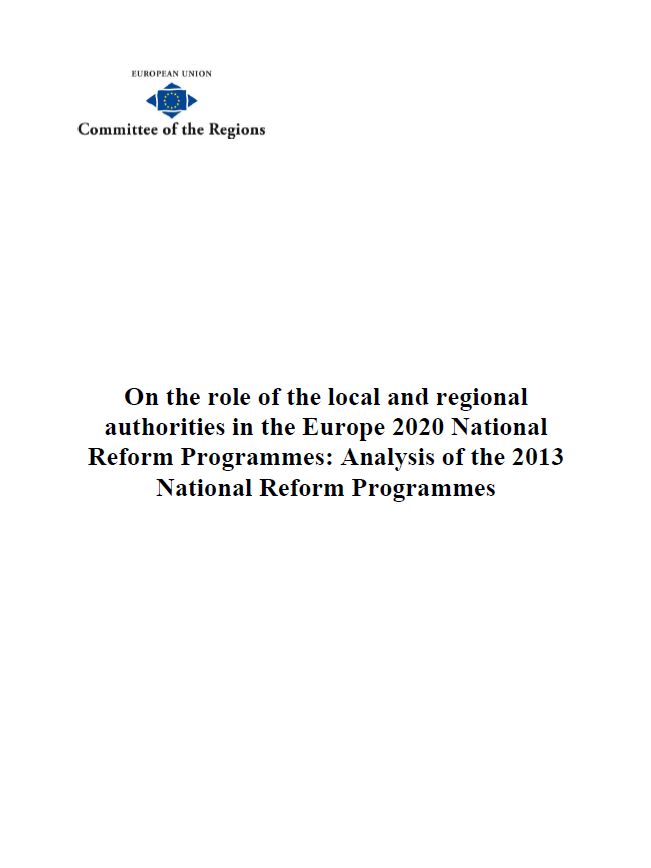Local and Regional State of Play and Policy Recommendations Concerning Sustainable Heating and Cooling: Focusing on EU Policy Level
- Project
- Duration
-
-
The overall aim of this project is to support the Committee of the Regions (CoR) by outlining the role cities and local and regional authorities (LRAs) can have in the planning, implementation and financing of more efficient district and renewable heating and cooling systems, usage of local heat, cold and fuel sources, insulation of buildings, the use of biomass in heating and cooling as well as Combined Heat and Power (CHP) generation.
Almost half of the primary energy consumption in Europe is used for heating and cooling. Nevertheless, heating and cooling issues have been scarcely considered in EU policies mainly due to the highly decentralised nature of heating that makes it difficult to develop a general policy. Efficient and renewable district heating and cooling as well as Combined Heat and Power (CHP) can play a major role for CO2 emissions reductions and thus to reach the EU climate targets. In its Communication "Energy Roadmap 2050" the European Commission suggests investments inter alia in power plants and grids, smart meters, insulation material, heating and cooling systems including district heating and cooling and devices for exploiting local renewable energy sources. An indicative roadmap for a Communication of the European Commission on an EU strategy for Heating and Cooling - the contribution from heating and cooling to realising the EU's energy and climate objectives was published in July 2015. This roadmap points to the necessity to prioritise heat as a policy area for energy efficiency inter alia based on the outcomes of the Mid-term Evaluation of the Renewable Energy Directive. By the end of 2015, the EU member states had to submit an assessment of the low carbon potential provided by Combined Heat and Power (CHP) generation and district heating and cooling systems.
In the project four representative cases of good practice (cities, which have already implemented district heating and cooling systems) are analysed. Based on this analysis the role of LRAs is highlighted and - where applicable - advices to strengthen their role in the planning and implementation processes. With respect to inter alia the recent Communication of the European Commission "Delivering a new deal for consumers" advantages and benefits of efficient district heating and cooling systems for consumers in terms of service, energy stability, security and prices as well as the role of consumers within the heating and cooling market are demonstrated.
The project team also provides policy recommendations and an outlook for future initiatives focused on innovative heating and cooling projects as well as CHP with regard to the role of LRAs in implementing and financing of such projects.
The project report is available for download.





